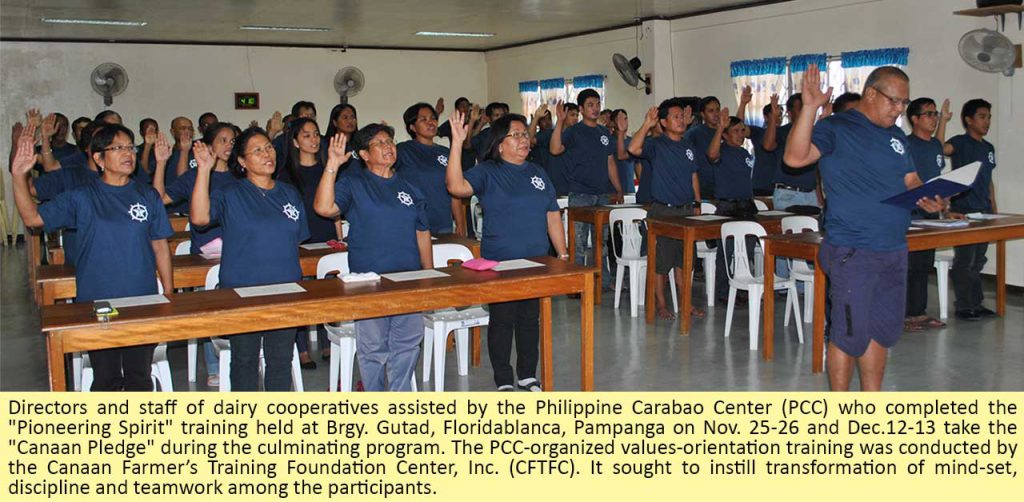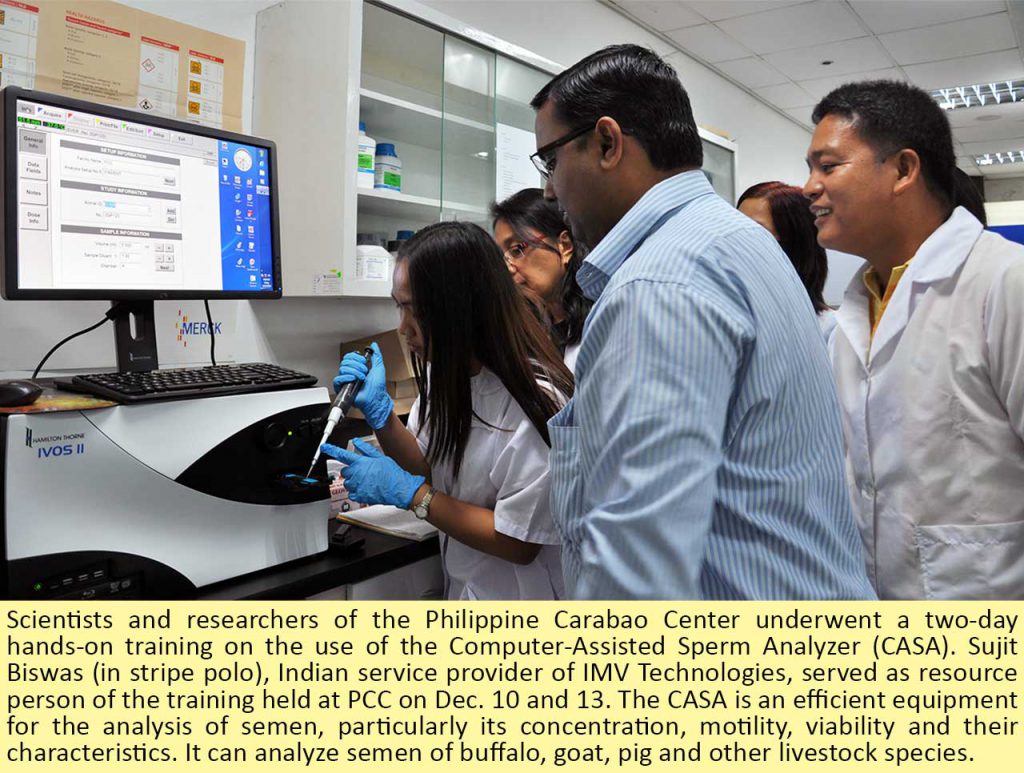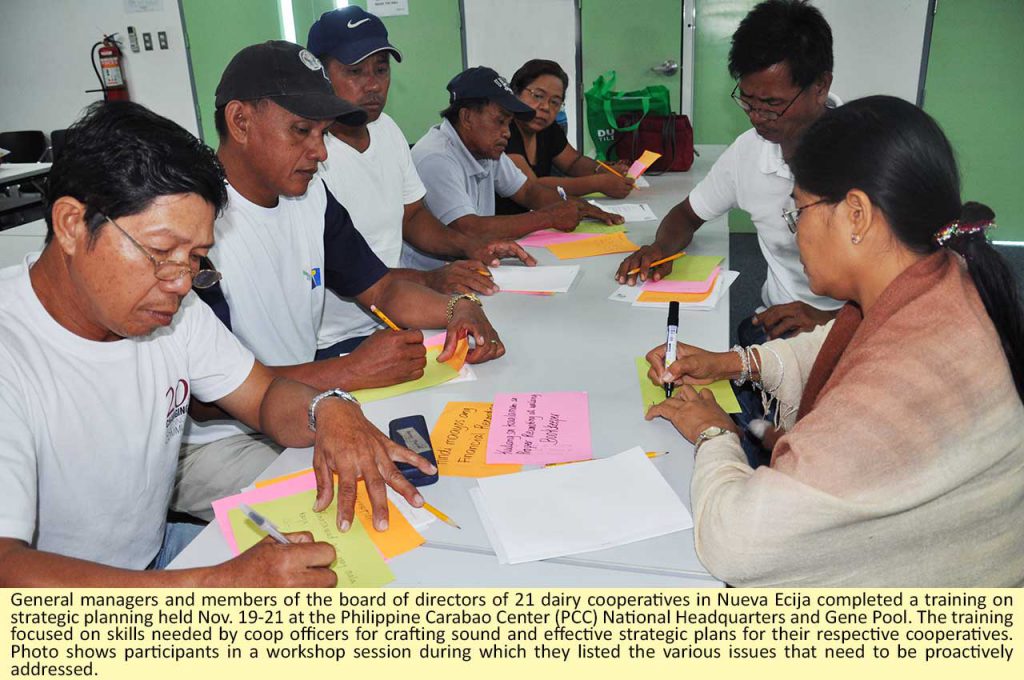Fifty-five dairy farmers have equipped themselves with the essentials of starting a business enterprise capitalizing on the abundance of their main produce – carabao milk.
The participants are members of different dairy cooperatives in Nueva Ecija, which is the National Impact Zone (NIZ) of the Carabao Development Program of the Philippine Carabao Center (PCC).
The four-day training was held at the PCC National Headquarters and Gene Pool in the Science City of Muñoz on December 19-22, 2013. It was conducted in partnership with the Department of Agrarian Reform (DAR), which funded the project through the Nueva Ecija Dairy Convergence System.
Spearheaded by PCC’s Dairy Herd Improvement and Enterprise Development (DHI/ED) unit, the training is part of a strengthening program to enhance the capabilities of carabao-based dairy cooperatives.
It also aims to complement other trainings undergone by the dairy farmers regarding carabao raising.
Aside from production-related matters, dairy farmers need to acquire knowledge and skills necessary for the business aspect of dairy production. These are necessary to help ensure the sustainability of the operation of dairy cooperatives.
“Sinusubukan nating tugunan lahat ng aspetong kailangan sa operasyon ng isang organisasyon para umunlad itong ating mga dairy cooperatives (We try to cater to the needs in all aspects of operation of an organization to help our dairy cooperatives progress),” Wilma del Rosario, Agriculturist II of PCC, said.
“Useful siya lalo na sa mga buffalo handlers. Meron na akong background on how I will manage, just in case mapadami o mapalago ko iyong mga alaga ko, at imamarket ang mga products at by-products (It is useful especially for buffalo handlers. I now have a background on how to manage, just in case I’ll be able to expand my operation, and how to market the products and other by-products [of buffalo production]),” Nieves Moralla Capan from Nag-iisang Masikap sa General Natividad, said.
At the end of the training, the participants were urged to apply what they have learned in formulating a business plan covering 5 to 10 years.
Dr. Fe L. Porciuncula, director of the Ramon Magsaysay Center for Agricultural Resources and Environmental Studies (RM CARES), and Dr. Pablo J. Rafael, Jr., chair of the Agribusiness department of the College of Agriculture of the Central Luzon State University (CLSU), served as resource persons during the three-day training.



